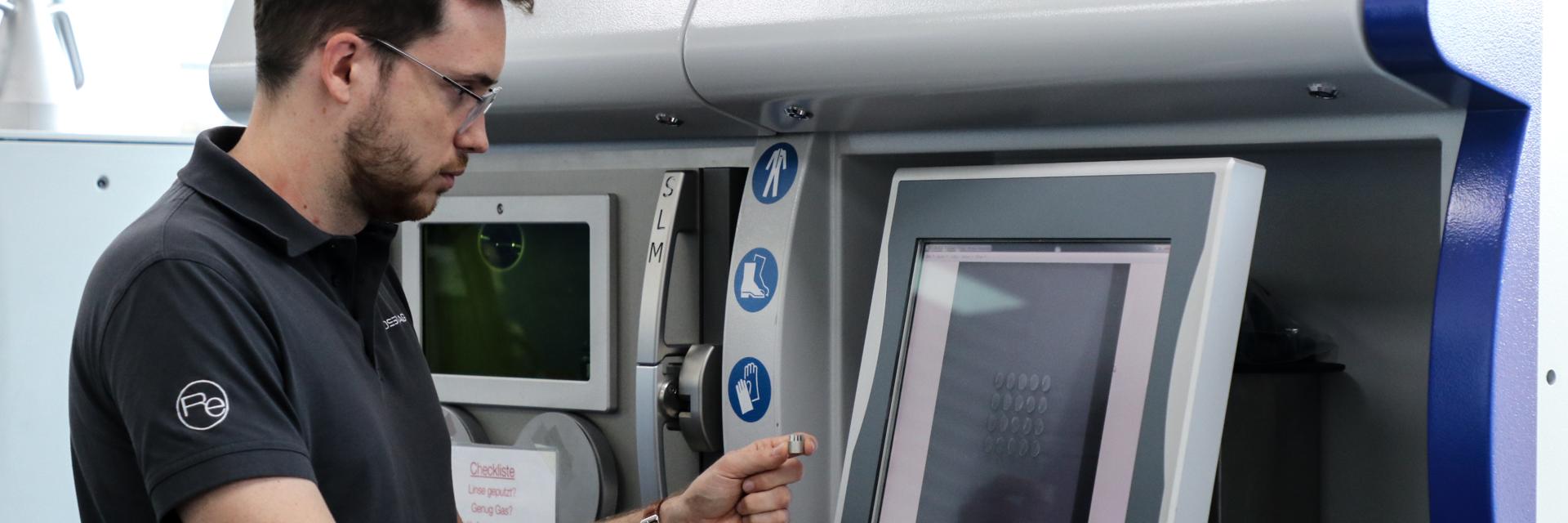ÉTUDE DE CAS
A Day’s Worth of Work in 20 Minutes: Automating 3DP Process Parameter Development
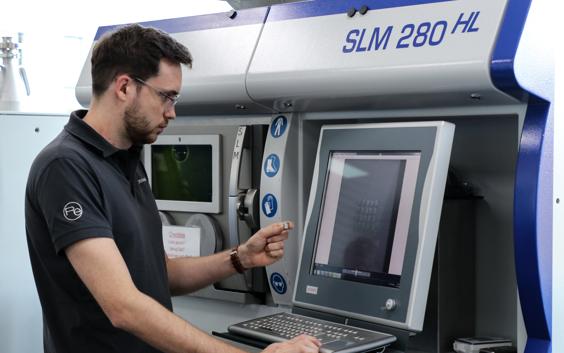
It takes a lot of time and effort to qualify a new material, process, or machine for metal additive manufacturing (AM). Many experiments must be completed to test out the dependencies of different parameters including laser power, scanning speed, hatch distance, layer thickness, etc. You can imagine the time needed to set up the tests, track the data, analyze results, and more. Rosswag Engineering has qualified more than 40 materials, so their team is thoroughly familiar with these tasks and the difficulties that accompany them. But after introducing Materialise Process Tuner into their workflow, this undertaking has transformed for the better.
Challenge
With over 100 years of experience in processing more than 400 metal materials, Rosswag was well-positioned to expand into the 3D printing sphere. Since 2014, the Rosswag team has qualified over 40 metal materials for AM and produced more than 60,000 parts.
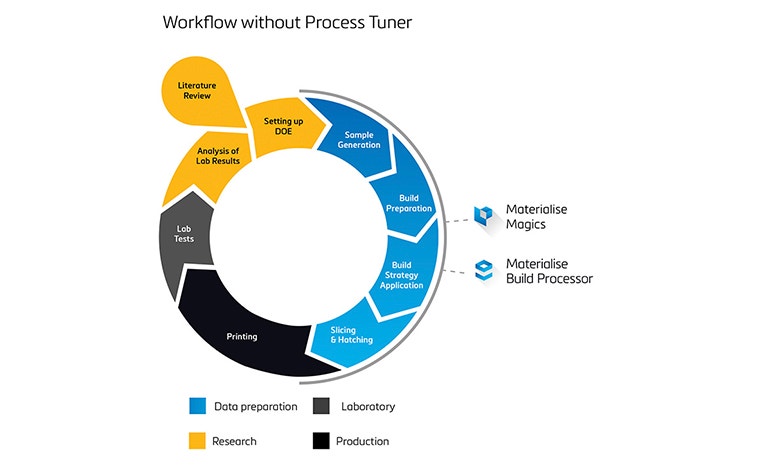

Within their role of qualifying metal materials, the team spends a lot of their time testing and validating parameters. But these tasks don’t come without their own set of challenges.
“The data handling and production planning for parameter optimization have always required a lot of manual effort,” explains Philipp Schwarz, Business Development Manager at Rosswag. “For each test, we had to manually set and document the values for all the varied parameter combinations. The more tests that are needed, the more time-consuming this effort becomes. For example, we had a study with more than 400 cubes that would take at least one full day to do in this manner.”
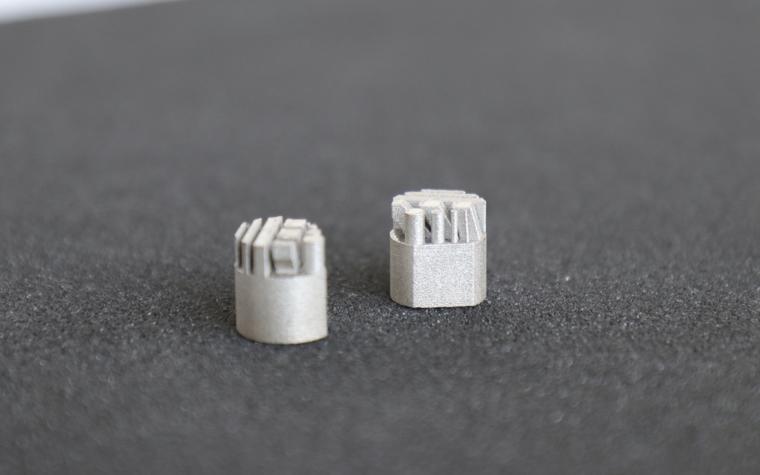

But these huge time and effort requirements weren’t the only challenges they faced. Setting up and tracking data without a proper database greatly increased the risk of human error. A mistake such as mislabeling a parameter value could throw off the entire study.
Solution
In times when excessive manual work is causing issues for companies, automating tasks is often the ideal resolution. That’s why when Rosswag’s additive department learned about the capabilities of Materialise Process Tuner, they were enthusiastic about the potential it holds for executing their design of experiments (DOE). The Process Tuner is a new software solution from Materialise that streamlines collaborative process parameter development with automated workflows, insights, and an embedded database.
“Working with the Process Tuner is very simple, and because of the automation, there’s no risk of mistakes.”
— Philipp Schwarz, Business Development Manager, Rosswag
“When we met with the Rosswag team and learned about their projects, we knew they’d be the perfect fit for our Process Tuner validation program,” says Vivek Chowdary Penumarthi, Product Manager at Materialise. “Because of this collaboration, they could use our early versions of the software to improve their workflows, and we could take their valuable feedback to continuously improve the solution.”
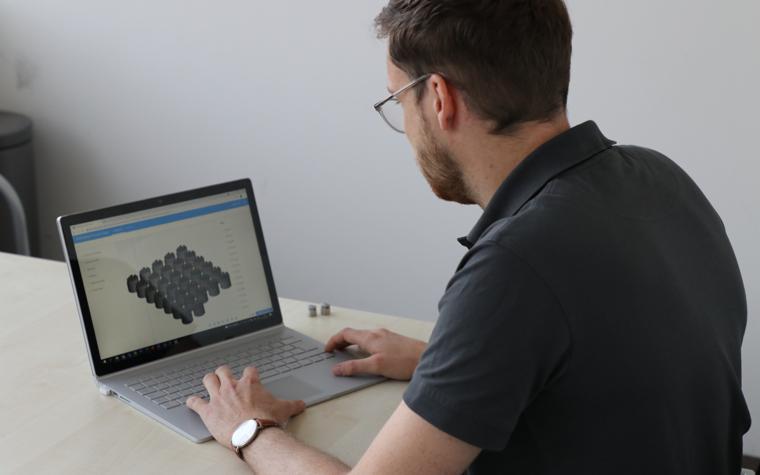

The Process Tuner was the right fit for Rosswag’s projects because it automates and tracks the creation of every experiment. “With this software, we can set up and perform complex multidimensional parameter studies much faster and more efficiently. Working with the Process Tuner is very simple, and because of the automation, there’s no risk of mistakes,” shares Philipp.
The user can generate the sliced and hatched job file with a click of a button, thanks to the seamless integration with Build Processors. Then, all the information needed for printing — including the job file, platform files, and parameters — is automatically saved in the embedded database.
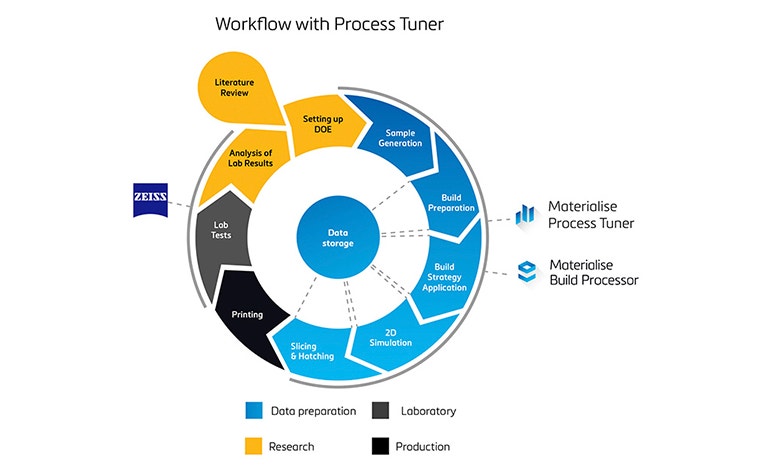

Performing studies for material and parameter validation were made even simpler by combining this workflow with solutions from ZEISS. Rosswag uses the ZEISS AM parameter to quickly and automatically measure porosity in different locations of the test specimen, like bulk area, thin walls, overhangs, cylinders, and contours. The test specimen features can be customized depending on the final part to be printed. This collaboration made a huge difference in the effort required for lab tests and analysis of the results.
Result
Rosswag quickly saw a huge improvement in their DOE workflows. Data preparation which typically took around 3 hours to do, and sometimes even more than one day, could be done in 20-30 minutes. The number of samples used to have a huge impact on the time and effort of their data preparation process. But with Process Tuner’s capabilities, no matter the number of samples, the data preparation can be finished in 20-30 minutes.
Overall, the Rosswag team now saves an average of more than 20 hours of engineering time per month. “We offer our customers an initial qualification of new alloys from powder atomization to mechanical properties of printed samples in less than two weeks. The Process Tuner has helped us achieve these extremely fast development cycles,” explains Philipp.
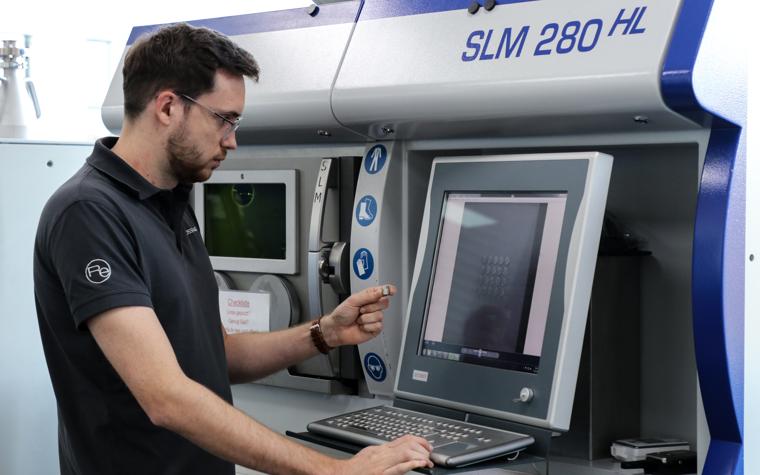

“Collaborations like this are crucial for quick industrialization of additive manufacturing,” concludes Philipp. “It’s important to work with others in the industry who want to push the limits of this amazing technology.”
Currently, Rosswag is also validating the beta version of Process Tuner Simulation. Both the Materialise and Rosswag teams are highly confident that this 2D Simulation tool can reduce the total number of printed builds necessary to achieve the optimal process window.
ZEISS® is a registered trademark of Carl Zeiss AG
Partageons :
Cette étude de cas en quelques mots
Metal 3D printing
- Process Tuner automates the set-up of complex parameter studies
- Laser powder bed fusion (LPBF)
Reduce time spent setting up experiments for parameter qualification
